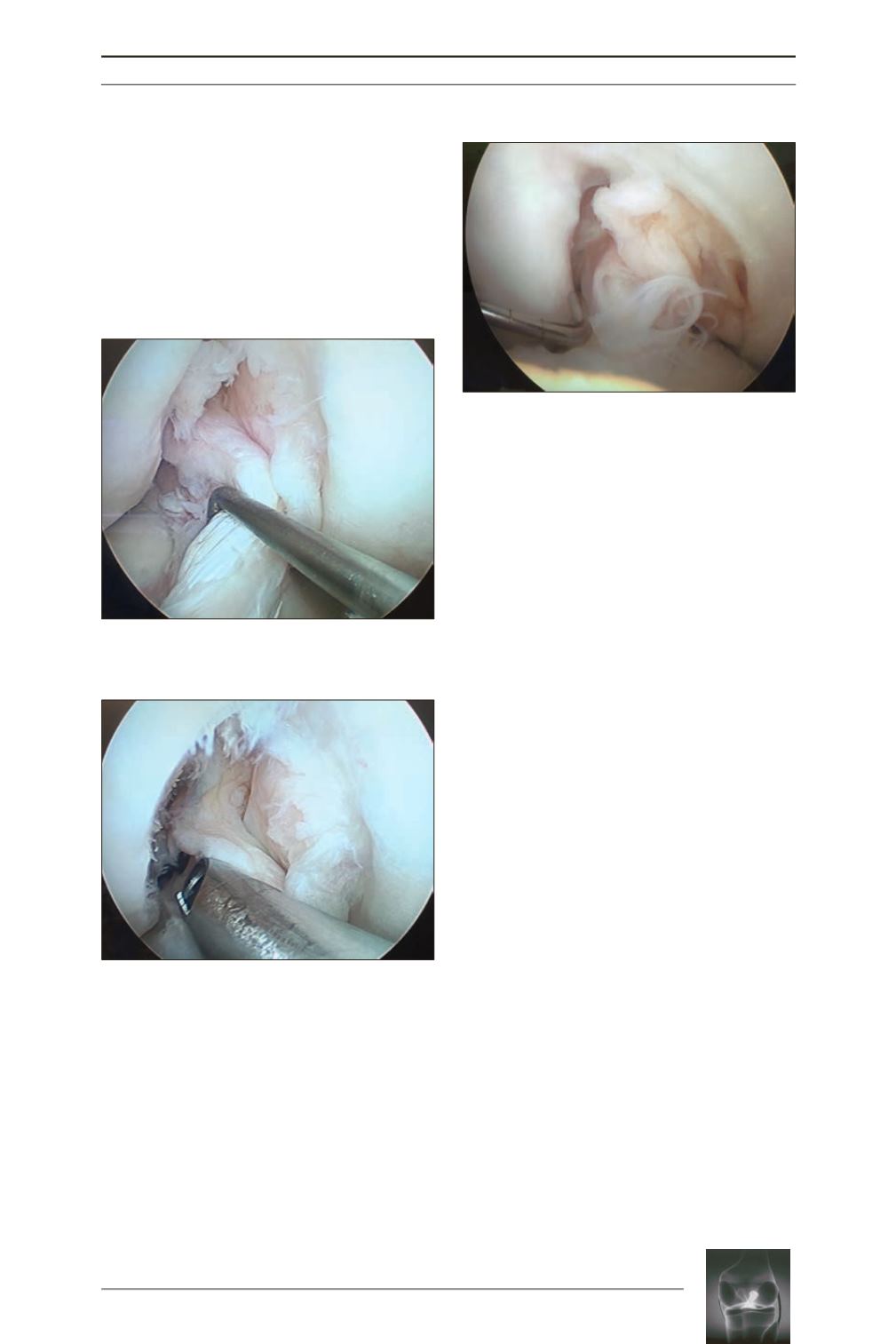

NOTCH PLASTY IN ACL RECONSTRUCTION
181
traumatic injury and not the shape of the top of
the inter-condylar notch.
What we consider important is the percentage
of narrow notch in the second ACL
reconstruction: 54% higher than in the first
cases: 16%.
CONCLUSION
The results presented in this study have found
18,5% of narrow inter-condylar notches in
ACL reconstruction on a group of 200 cases.
We didn’t find any difference in the cases of
ICN concerning bilateral cases, but we did find
a significant increase in cases of narrow ICN
for the second ACL reparation for whom a
notch plasty had been made.
Furthermore, we also didn’t find any difference
in the ICN index between the two groups A
(0,247) and B (0,245). Our population finds
itself in the middle of statistical values but with
little difference in the two groups.
So we have to consider, as the Doctor Beaufil
wrote in his paper, that Notch plasty must only
restore the anatomy if the notch is narrow, but
the plasty should not be made to correct an
anterior position of the ACL graft which is too
significant.
We think that notch plasty could create an
osseous conflict with possible threatening
complications to the graft and it has to remain
reserved for particular indications.
With these indications of narrow inter-condylar
notch aside, the plasty should not be done.
When we have to do it, we should respect the
primary anatomy.
Fig. 2:
Release ACL in narrow intercondylar notch.
Fig. 3:
View after plasty.
Fig. 4:
Intercondylar notch shows a small lateral
osteophytis after one year ACL surgery (DT4) for a
meniscectomy arthroscopy.











